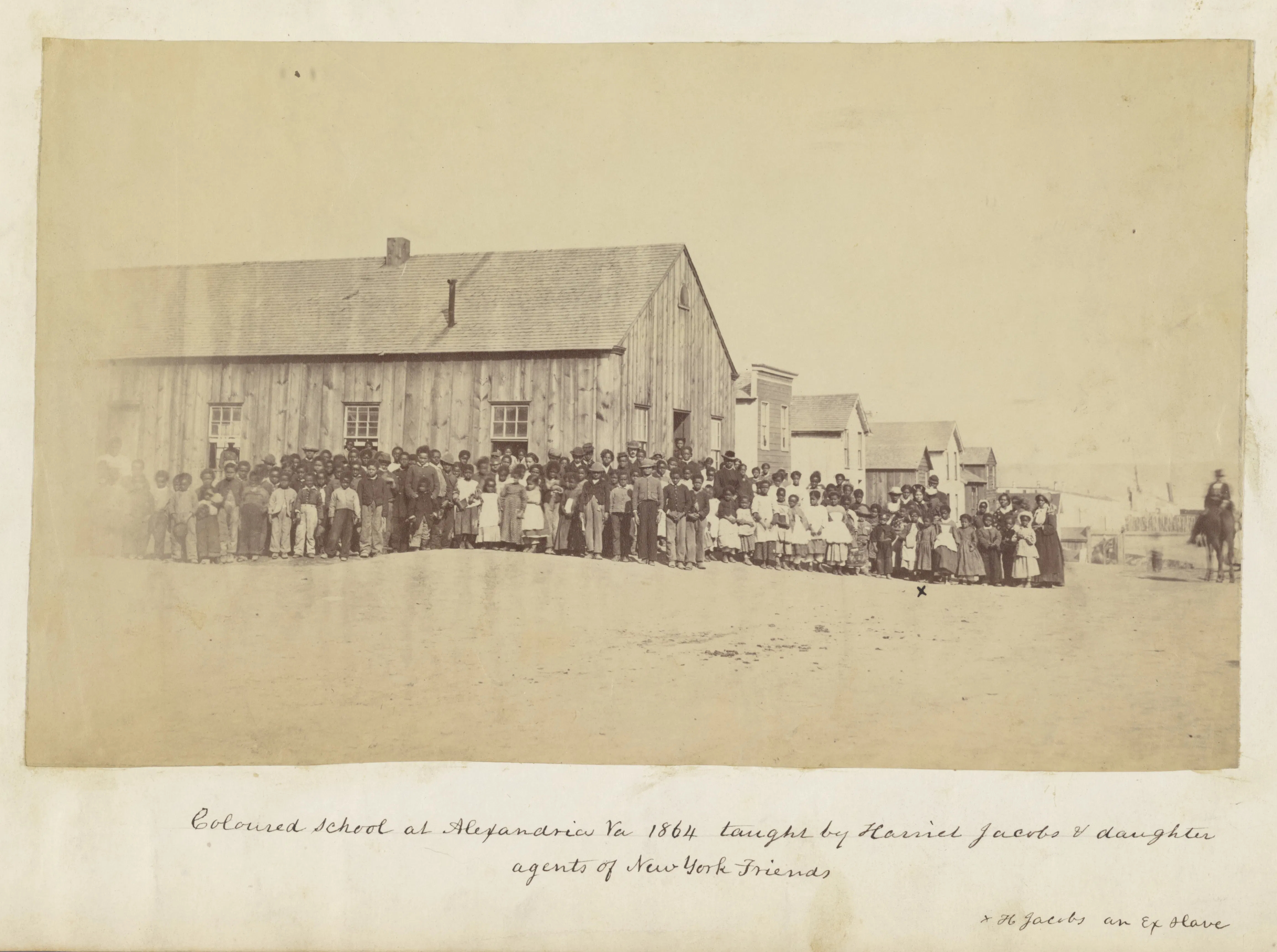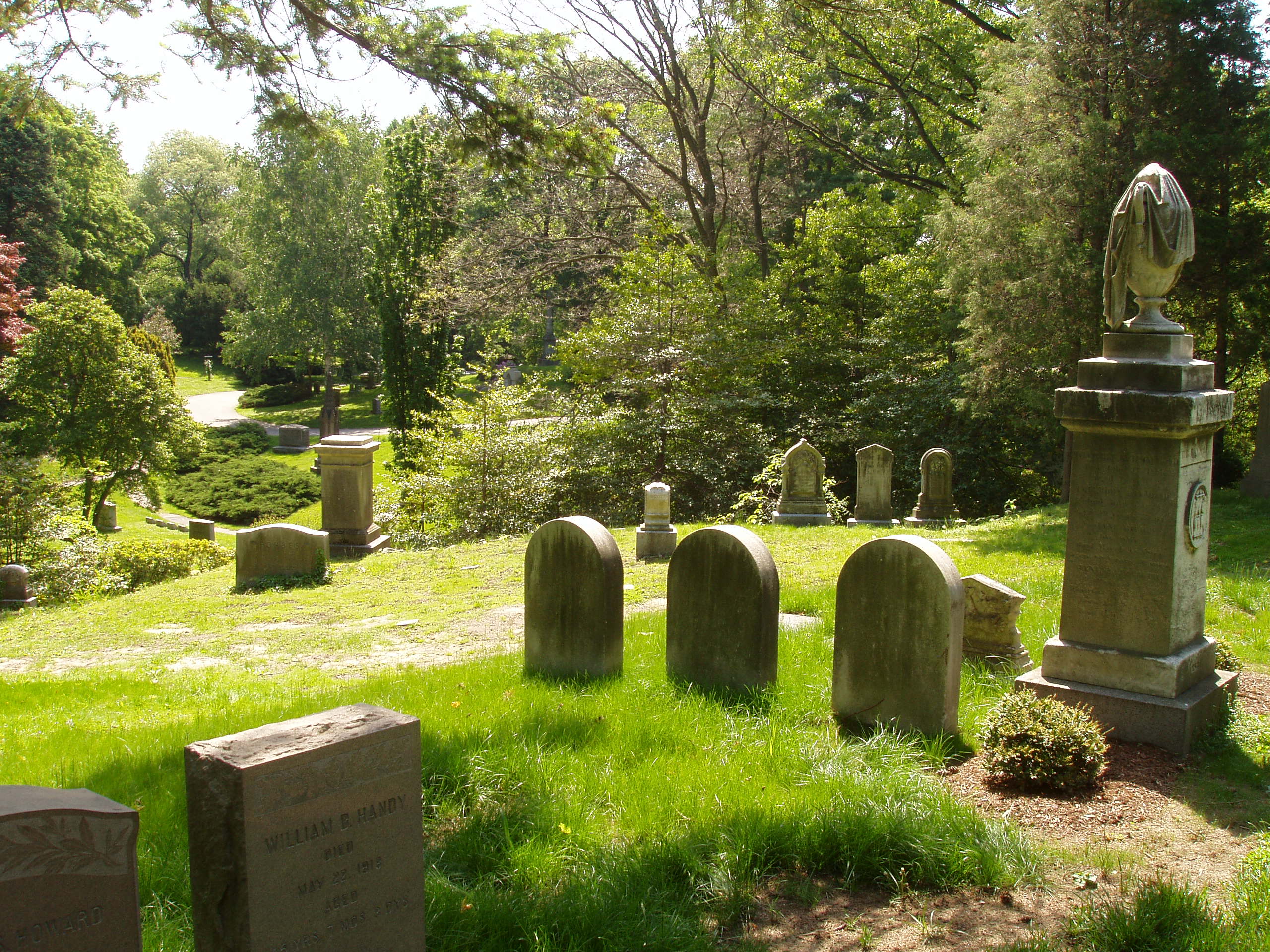Louisa Matilda Jacobs on:
[Wikipedia]
[Google]
[Amazon]
Louisa Matilda Jacobs (1833 – April 5, 1917) was an African-American abolitionist and civil rights activist and the daughter of famed escaped slave and author,
 In 1863, Jacobs and her mother founded Jacobs Free School, a Freedmen's School in Alexandria, Virginia, putting her teaching education to use by educating Black children who had been freed from slavery. The school grew quickly, requiring a second teacher to be hired within just a few months of opening. Three years later, she moved to Savannah, Georgia with her mother and founded a new Freedmen's School, which Louisa chose to name Lincoln School. Following her teaching career Jacobs established a boarding house in Cambridge, Massachusetts with her mother, where they worked and lived side by side, with Jacobs taking on most of the responsibility in later years as she also cared for her ailing mother. Following her mother's death, Jacobs worked as matron of the National Home for the Relief of Destitute Colored Women and Children, then accepted a matron position at
In 1863, Jacobs and her mother founded Jacobs Free School, a Freedmen's School in Alexandria, Virginia, putting her teaching education to use by educating Black children who had been freed from slavery. The school grew quickly, requiring a second teacher to be hired within just a few months of opening. Three years later, she moved to Savannah, Georgia with her mother and founded a new Freedmen's School, which Louisa chose to name Lincoln School. Following her teaching career Jacobs established a boarding house in Cambridge, Massachusetts with her mother, where they worked and lived side by side, with Jacobs taking on most of the responsibility in later years as she also cared for her ailing mother. Following her mother's death, Jacobs worked as matron of the National Home for the Relief of Destitute Colored Women and Children, then accepted a matron position at

National Home
Short biography by Friends of Mount Auburn, including pictures of the tombstones of Harriet, John and Louisa Jacobs
{{DEFAULTSORT:Jacobs, Louisa Matilda 1833 births 1917 deaths African-American abolitionists American women activists People from Edenton, North Carolina Women civil rights activists 20th-century African-American women 20th-century African-American people
Harriet Jacobs
Harriet Jacobs (1813 or 1815 – March 7, 1897) was an African-American writer whose autobiography, ''Incidents in the Life of a Slave Girl'', published in 1861 under the pseudonym Linda Brent, is now considered an "American classic". Born into ...
. Along with her activism, she also worked as a teacher in Freedmen's Schools in the South, and as a matron at Howard University
Howard University (Howard) is a private, federally chartered historically black research university in Washington, D.C. It is classified among "R2: Doctoral Universities – High research activity" and accredited by the Middle States Commissi ...
.
Early life
256x256px, Louisa's mother, Harriet Jacobs, alt=, left Jacobs was born inEdenton, North Carolina
Edenton is a town in, and the county seat of, Chowan County, North Carolina, United States, on Albemarle Sound. The population was 4,397 at the 2020 census. Edenton is located in North Carolina's Inner Banks region. In recent years Edenton has b ...
on October 19, 1833, to Samuel Tredwell Sawyer
Samuel Tredwell Sawyer (1800 – November 29, 1865) was an attorney and politician. Although he served as Congressional Representative, today he is mostly remembered for fathering the two children of the young slave Harriet Jacobs, in whose auto ...
(a congressman and newspaper editor) and his mistress Harriet Jacobs
Harriet Jacobs (1813 or 1815 – March 7, 1897) was an African-American writer whose autobiography, ''Incidents in the Life of a Slave Girl'', published in 1861 under the pseudonym Linda Brent, is now considered an "American classic". Born into ...
, at a time when Harriet was enslaved by Dr. James Norcom. Louisa also had an older brother, Joseph Jacobs, born in 1829. Harriet Jacobs had been sexually harassed by Norcom for many years, but she continually refused his advances and mistakenly hoped that her relationship with Sawyer would be a deterrent to Norcom. As Harriet continued to refuse Norcom's advances, Norcom began to threaten her children in anticipation of coercing Harriet into a sexual relationship, and she became increasingly fearful for them. Harriet chose to escape when Louisa was two years old in hopes that Norcom would sell Louisa and Joseph into a safer situation. Harriet's hopes proved correct when Samuel Sawyer (the children's father) purchased the children from Norcom and sent Louisa to live with her great-grandmother Molly, then taking her to Washington, D.C. before sending her to live with a cousin in Brooklyn, New York. From Brooklyn, Harriet located Louisa and fled to Boston with her.
Career and activism
Education
While in Boston, Jacobs was educated at home and afterwards attended the Young Ladies Domestic Seminary School in Clinton, New York. She later obtained training to become a teacher in Boston, and teaching would soon become an important part of her life.Activism
Jacobs's mother Harriet became acquainted withAmy Post
Amy Kirby Post (December 20, 1802 – January 29, 1889) was an activist who was central to several important social causes of the 19th century, including the abolition of slavery and women's rights. Post's upbringing in Quakerism shaped her belie ...
and her feminist abolitionist circle while Louisa was studying in Clinton, leading to both Harriet and Louisa becoming involved in the movement. Louisa divided her time between living with the family of Zenas Brockett, a white abolitionist, and helping her mother in the Willis family home. She also spoke about women's suffrage on an American Equal Rights Association
The American Equal Rights Association (AERA) was formed in 1866 in the United States. According to its constitution, its purpose was "to secure Equal Rights to all American citizens, especially the right of suffrage, irrespective of race, color o ...
lecture tour through New York state in 1867 which included other activists such as Susan B. Anthony
Susan B. Anthony (born Susan Anthony; February 15, 1820 – March 13, 1906) was an American social reformer and women's rights activist who played a pivotal role in the women's suffrage movement. Born into a Quaker family committed to s ...
and Charles Lenox Remond
Charles Lenox Remond (February 1, 1810 – December 22, 1873) was an American orator, activist and abolitionist based in Massachusetts. He lectured against slavery across the Northeast, and in 1840 traveled to the British Isles on a tour with W ...
.
Career
 In 1863, Jacobs and her mother founded Jacobs Free School, a Freedmen's School in Alexandria, Virginia, putting her teaching education to use by educating Black children who had been freed from slavery. The school grew quickly, requiring a second teacher to be hired within just a few months of opening. Three years later, she moved to Savannah, Georgia with her mother and founded a new Freedmen's School, which Louisa chose to name Lincoln School. Following her teaching career Jacobs established a boarding house in Cambridge, Massachusetts with her mother, where they worked and lived side by side, with Jacobs taking on most of the responsibility in later years as she also cared for her ailing mother. Following her mother's death, Jacobs worked as matron of the National Home for the Relief of Destitute Colored Women and Children, then accepted a matron position at
In 1863, Jacobs and her mother founded Jacobs Free School, a Freedmen's School in Alexandria, Virginia, putting her teaching education to use by educating Black children who had been freed from slavery. The school grew quickly, requiring a second teacher to be hired within just a few months of opening. Three years later, she moved to Savannah, Georgia with her mother and founded a new Freedmen's School, which Louisa chose to name Lincoln School. Following her teaching career Jacobs established a boarding house in Cambridge, Massachusetts with her mother, where they worked and lived side by side, with Jacobs taking on most of the responsibility in later years as she also cared for her ailing mother. Following her mother's death, Jacobs worked as matron of the National Home for the Relief of Destitute Colored Women and Children, then accepted a matron position at Howard University
Howard University (Howard) is a private, federally chartered historically black research university in Washington, D.C. It is classified among "R2: Doctoral Universities – High research activity" and accredited by the Middle States Commissi ...
before retiring at 75 years of age due to a heart condition. She spent most of her remaining years with the Willis family, who had become like family during her mother's tenure with them.
Literary Works/Memoirs
* ''Incidents in the Life of a Slave Girl
''Incidents in the Life of a Slave Girl, written by herself'' is an autobiography by Harriet Jacobs, a mother and fugitive slave, published in 1861 by L. Maria Child, who edited the book for its author. Jacobs used the pseudonym Linda Brent. The ...
'' by Harriet Jacobs - In Harriet's popular memoir of life as an enslaved woman, the early years of Louisa's life are included under the pseudonym 'Ellen.'
* ''The Harriet Jacobs Family Papers'' edited by Jean Fagan Yellin - A collection of important documents and correspondence regarding Harriet and her family, including correspondence belonging to Louisa and documents such as a report of her school in Savannah, and her final will.
* ''Whispers of Cruel Wrongs: The Correspondence of Louisa Jacobs and Her Circle, 1879-1911'' edited by Mary Maillard - A collection of letters between Louisa and many acquaintances.
Later life and death
Jacobs suffered from a heart condition and her health deteriorated following several years of being a full time nurse to her ailing mother. She died on April 5, 1917 in Cambridge, Massachusetts, where she was buried alongside her mother in the family plot of theMount Auburn Cemetery
Mount Auburn Cemetery is the first rural cemetery, rural, or garden, cemetery in the United States, located on the line between Cambridge, Massachusetts, Cambridge and Watertown, Massachusetts, Watertown in Middlesex County, Massachusetts, Middl ...
.
References
External links
National Home
Short biography by Friends of Mount Auburn, including pictures of the tombstones of Harriet, John and Louisa Jacobs
{{DEFAULTSORT:Jacobs, Louisa Matilda 1833 births 1917 deaths African-American abolitionists American women activists People from Edenton, North Carolina Women civil rights activists 20th-century African-American women 20th-century African-American people